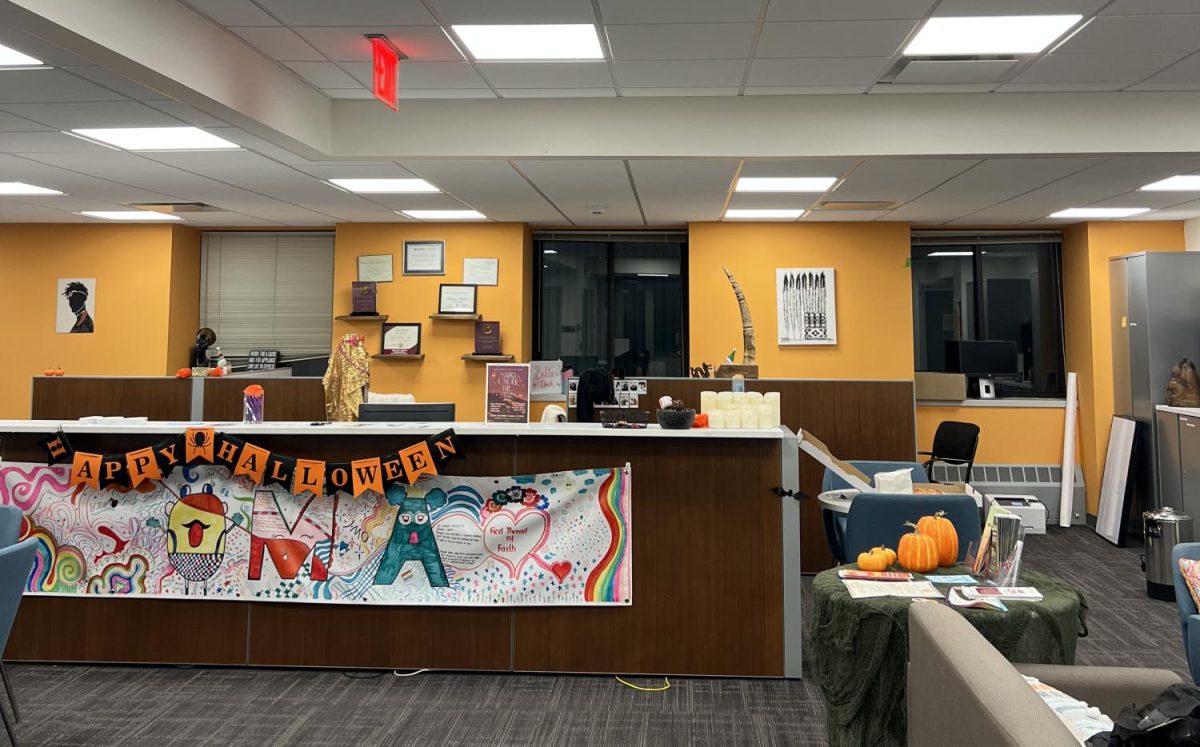By Laura Sanicola

Pacing around the front of a full Gabelli classroom, Fordham economics professor Giacomo Santangelo gives the impression that he never stands still. His long, dark beard and ponytail, stylish brown jacket and hand full of rings separate his aesthetic from many professors at Fordham. Santangelo is no stranger to the press. In the past year, he has given several published interviews on economics and trade.
Can you tell me a bit about your career path and what events from your early life shaped it?
When I was an undergraduate at the Seton Hall business school, economics classes were the ones that made the most sense to me. They ran out of economics classes to give me, so I ended up with a major, and then I moved on to graduate school to take more economics courses. Another reason I chose to go to graduate school was because the job market was terrible out of college. Rather than be like so many of my classmates who were having difficulty finding employment, I continued to intern on Wall Street. It was there I realized that I could go to graduate school for free if I agreed to teach. Again, I kept going to school until they ran out of classes to give me, while on the side doing any sort of consulting jobs that came up.
What did you notice about education the first time you taught that surprised you?
Early on, I noticed that in education when students would ask professors questions, professors would be reluctant to answer, often because they wanted to work on something else. I always thought that if I was a professor, I would answer students’ questions regardless of what they asked—I mean, that’s what I’m getting paid for.
The first time you made a media appearance, what was it like and what was it about?
When I got to my first teaching position at Seton Hall, Channel 9 News called and asked if there was anyone who could cover the 2006 pension crisis, and none of the professors would do it; they all said no. When I asked them why they refused, the professors said they were paid for their opinion. They asked me why I would give my opinion for free. I thought that was awful. That was the first time I was on T.V., and since then, whenever I get an interview request, I never hesitate to speak.
What are your favorite topics to talk about?
It’s really all of it, all of the current issues going on the world right now. I want to teach people, including my students, the things they are passionate about. There are so many things that students need to know when they come into my class.
Do you mean, Brexit? Trade deals?
I think that students need to know about all of those things. One is not more important than the other. We don’t seem to know or have access to the information as to what is really going on. The media really chooses nonsensical things (no offense) to focus on when there are much larger issues that will affect more people, and we really gloss over those. More often than not, students will come to me and say, “‘There are so many things going on in the world. How do you know what to care about?’” Isn’t that a crazy thought? All of them!
What do you like most about teaching?
Having two days off during the week… Just kidding! It’s the interactions with people that are very fulfilling. But also the time off.
What do you enjoy doing outside the classroom?
I like to read—I read two or three books a week. I can tell you that I don’t like grading papers. The problem is that I think so much about work that regardless of what I’m reading or what movies I’m watching, I tend to see a lot of the economical stuff in it.
What is a common misconception people have about economics?
People think it’s really hard, and because they think it’s really hard they don’t really take it as seriously as they should. They think of it like calculus, and economics is not really hard. It’s actually quite simple, and it benefits everyone just as much as being able to have good grammar. It’s just a tool, a way of looking at the world, and I think that if people had a better grasp of how simple it is then they’d look into it more. Because it’s everywhere.










































































































































































































Ben Arisen (@BrightLeaf88) • Oct 26, 2016 at 6:17 pm
I had this professor! Giacomo Santangelo is the Willy Wonka of economics. I highly recommend his classes.